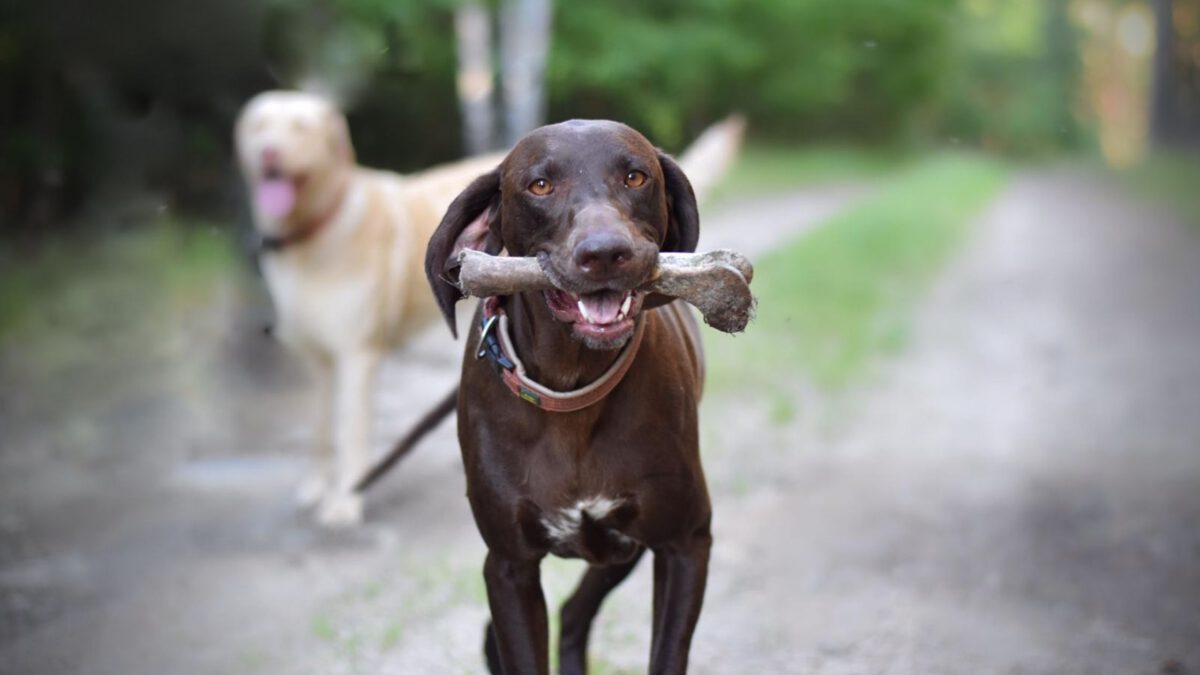Dogs and bones have a long-standing relationship that dates back to the domestication of our furry friends. Wolves and wild dogs, who are close relatives of our beloved pets, often consume bones from their prey, including deer. But with the changes dogs have undergone over the years, it’s important to consider if it’s safe to give them venison bones.
The Benefits of Giving Your Dog Venison Bones
Feeding your dog deer bones can be a great addition to their diet for several reasons. For one, they provide increased nutrition and contribute to improved oral health. Chewing on bones is not only fun for dogs but also helps to relieve stress and anxiety. It releases endorphins, the hormones associated with happiness, making it a pleasurable experience for your furry friend.
Types of Venison Bones to Consider
Not all deer bones are suitable for dogs, so it’s essential to choose the right ones based on your dog’s size. Here are a few options you can consider:
Epiphysis (Knuckle Bones)
These dense and tough bones are excellent for medium and large dogs who are aggressive chewers. They provide a challenge and can help keep your dog entertained for hours.
Kneecaps
Kneecaps are small triangular bones that contain a lot of glucosamine, which helps prevent arthritis in old age. They are suitable for dogs of all sizes but may not last long for larger breeds.
Long Bones
Long bones, such as the femur, tibia, or metatarsal, are ideal for large dogs. They can be chewed on, promoting oral hygiene and preventing boredom.
Flat Bones
Flat bones, found in the ribs, pelvis, or spine, are softer and contain less marrow. They are a perfect choice for introducing deer bones to puppies or small dogs, especially if they have loose stool problems.
Hooves
Deer hooves may not be very nutritious, but they provide an engaging chew for small and medium-sized dogs. They are made of keratin, which can help improve coat health.
Raw or Cooked: Which is Better?
While raw bones are generally recommended, there are instances where feeding cooked bones may be necessary. Older dogs, for example, may have difficulty chewing on raw bones but can still benefit from the nutrients in cooked bones. However, it’s important to note that boiled bones become more brittle and can pose a higher risk of breaking when chewed. Slow cooking can make bones softer and safer for smaller dogs.
The Benefits and Dangers of Deer Bones
There are several advantages to giving your dog deer bones. They act as natural toothbrushes, helping to eliminate plaque buildup and promote oral health. Deer bones also provide nutritional value, including calcium, essential fatty acids, and fat-soluble vitamins. They offer entertainment and can be used for training purposes.
However, it’s crucial to be aware of the potential dangers. Raw bones may contain harmful bacteria such as salmonella or E. coli, so proper handling and processing are essential. It’s important to supervise your dog while they chew on bones to prevent any choking hazards or injury. Additionally, prolonged exposure to bones can lead to health issues such as constipation, loose stool, or broken teeth.
Introducing Deer Bones to Your Dog
When introducing deer bones to your dog, it’s best to start with short sessions and monitor their reaction. Gradually increase the amount of time they have the bone, observing any changes in behavior or discomfort. You can split or grind the bones if necessary to make them more appealing to your dog. If you have multiple dogs, it’s recommended to keep them separated during bone chewing sessions to prevent any potential conflicts.
Nutritional Value of Deer Bones
Deer bones offer a variety of nutritional benefits. They are rich in calcium, calcium phosphate, copper, iron, collagen, and cartilage. The marrow provides proteins, amino acids, and essential fatty acids, contributing to your dog’s overall health and well-being.
Conclusion
Venison bones can be a safe and enjoyable treat for your dog, providing numerous health benefits when given in moderation. They promote oral health, offer nutritional value, and serve as a source of entertainment. However, it’s important to be aware of potential risks and supervise your dog while they chew on bones. With proper handling and monitoring, deer bones can be a nutritious addition to your dog’s diet.
Frequently Asked Questions
Q: Are deer bones safe for all dogs?
A: Yes, deer bones are generally safe for dogs of all sizes. However, it’s important to choose the appropriate size and type of bone based on your dog’s needs and chewing habits.
Q: Can cooked deer bones be given to dogs?
A: While raw bones are generally recommended, cooked bones can be given to dogs in certain situations. Slow cooking is a safer option compared to boiling or baking, as it maintains the bone’s integrity while making it softer for chewing.
Q: How often can I give my dog deer bones?
A: It’s best to give your dog deer bones in moderation, a few times a week. Excessive consumption can lead to potential health issues, so it’s important to maintain a balanced diet overall.
Q: Can deer bones cause diarrhea in dogs?
A: While deer bones can provide beneficial nutrients, excessive consumption or feeding low-quality bones may lead to digestive issues such as loose stool. It’s important to monitor your dog’s response and feed bones in moderation.
Q: Are there any risks associated with giving dogs deer bones?
A: Yes, like with any type of bone, there are risks involved. These include the potential for bacterial contamination, choking hazards, and tooth fractures. It’s crucial to supervise your dog and take appropriate measures to minimize these risks.

